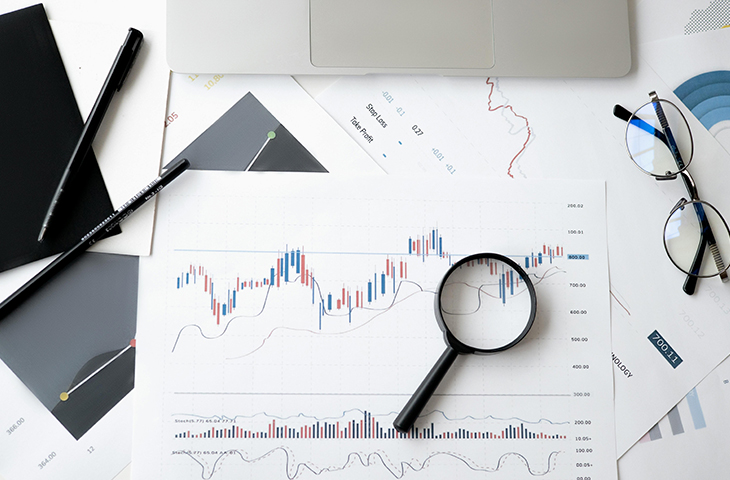The Current Bull Market Is 2 Years Old. History Says That Could Be Good News For Investors In 2025

Since the stock market became what it is today, it has switched between prolonged down periods and prolonged growth periods, known as bear and bull markets, respectively.
The stock market has had dozens of both bear and bull markets, but thankfully, investors have been enjoying a bull market for the past few years. On Oct. 12, 2022, the S&P 500 (SNPINDEX: ^GSPC) reached the bottom of its most recent bear market when it closed at 3,577.
Start Your Mornings Smarter! Wake up with Breakfast news in your inbox every market day. Sign Up For Free »
Since hitting that bottom, the stock market's most followed index has gone on a bull run, increasing close to 70% as of Dec. 15.
Data by YCharts.
With the current bull market a couple of months past its second birthday, there is some encouraging news for investors heading into 2025.
History is on the side of investors looking for continued momentum
Including the current one, there have been 17 bull markets since 1949 that have made it two full years. Though not all of them went on to last a full third year, 12 of them did.
| Bear Market End Date | Days In Bear Market | S&P 500 Change | First-Year Return | Second-Year Return | Third-Year Return |
|---|---|---|---|---|---|
| 6/13/1949 | 363 | (20.6%) | 40.0% | 14.5% | 12.9% |
| 10/22/1957 | 415 | (21.6%) | 31.5% | 9.7% | (4.8%) |
| 6/26/1962 | 196 | (28.0%) | 32.7% | 17.4% | 2.3% |
| 10/7/1966 | 605 | (22.2%) | 33.2% | 6.5% | N/A |
| 5/26/1970 | 543 | (36.1%) | 44.5% | 10.2% | N/A |
| 10/3/1974 | 630 | (48.2%) | 34.6% | 21.2% | (7.1%) |
| 3/6/1978 | 531 | (19.4%) | 12.8% | 15.2% | 16.9% |
| 8/12/1982 | 622 | (27.1%) | 57.7% | 2.0% | 13.9% |
| 12/4/1987 | 101 | (33.5%) | 21.4% | 29.0% | (8.0%) |
| 10/11/1990 | 87 | (19.9%) | 28.8% | 5.7% | 14.3% |
| 8/31/1998 | 45 | (19.3%) | 37.9% | 3.7% | N/A |
| 10/9/2002 | 929 | (49.1%) | 33.7% | 8.2% | 6.6% |
| 3/6/2009 | 514 | (56.8%) | 68.6% | 15.9% | 3.5% |
| 10/3/2011 | 157 | (19.4%) | 31.5% | 16.9% | 14.9% |
| 12/24/2018 | 95 | (19.8%) | 37.1% | 15.4% | 28.1% |
| 3/23/2020 | 33 | (33.9%) | 74.8% | 5.4% | N/A |
| 10/12/2022 | 282 | (25.4%) | 22.4% | 33.6% | TBD |
Data source: Carson Investment Research, Factset as of 10/08/2023. "N/A" indicates a full third year in the bull market wasn't accomplished. TBD = to be determined.
Of the 12 bull markets that made it a full third year, only three had negative returns in that third year, while six managed to produce double-digit gains. Not too shabby.
Don't take historical performance as a guarantee
I hate to be that guy, but I have to say it: Historical performance doesn't guarantee future performance. It can offer insight and help you see patterns, but it doesn't guarantee anything for the future, regardless of how strong the correlation may be.
In a logical world, history could be a straightforward predictor of the future. However, the stock market is notoriously irrational. Stock price movements are influenced by human behavior, including speculation, overconfidence, fear, and other emotions that often contradict conventional logic.
That's why it's important to be aware of history but not take it as the be-all and end-all when it comes to the stock market.
Keep your focus on being consistent
One thing to avoid is seeing a historical pattern and trying to time the market based on that. In this case, someone could see how often two-year-old bull markets make it a full third year with strong returns and decide that now is the time to rush to put money into the S&P 500 for near-term gains.
But your focus should instead be on remaining consistent and investing with a long-term mindset (ideally five years or more). Using a strategy like dollar-cost averaging can help avoid the itch to try to time the market because you put yourself on a strict investing schedule and stick to it no matter what stock prices are at the time.
The fear of missing out has caused investors to make many short-term moves that hurt them down the road. Be aware of historical patterns -- you can even be encouraged by them -- but long-term investing is what matters most.
Don’t miss this second chance at a potentially lucrative opportunity
Ever feel like you missed the boat in buying the most successful stocks? Then you’ll want to hear this.
On rare occasions, our expert team of analysts issues a “Double Down” stock recommendation for companies that they think are about to pop. If you’re worried you’ve already missed your chance to invest, now is the best time to buy before it’s too late. And the numbers speak for themselves:
- Nvidia: if you invested $1,000 when we doubled down in 2009, you’d have $334,266!*
- Apple: if you invested $1,000 when we doubled down in 2008, you’d have $46,976!*
- Netflix: if you invested $1,000 when we doubled down in 2004, you’d have $479,727!*
Right now, we’re issuing “Double Down” alerts for three incredible companies, and there may not be another chance like this anytime soon.
*Stock Advisor returns as of December 16, 2024
Stefon Walters has no position in any of the stocks mentioned. The Motley Fool has no position in any of the stocks mentioned. The Motley Fool has a disclosure policy.

